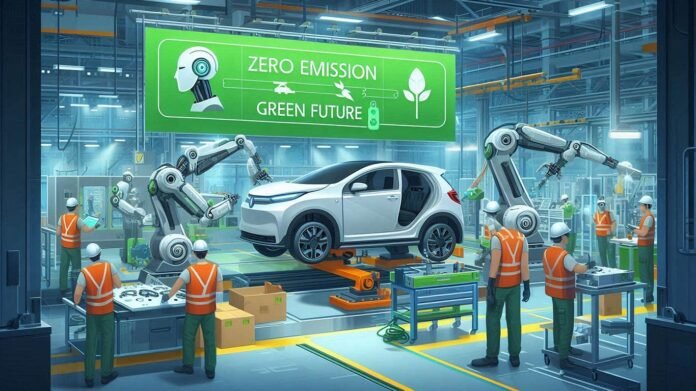At 733,000 units, the EV industry’s retail sales five months into FY2025 represent 43% of FY2024’s record 1.68 million units. The 2-million goal might be reached if the 2- and 3-wheeler segments, which make up 94% of overall sales, continue to show the same velocity that they did from April to August of 2024. Many factors, however, include the FAME III subsidy’s activation, OEMs’ rationalization of electric vehicle prices through improved localization, and the rate at which consumers embrace e-mobility.
Present Trends in EV Sales
Around 733,000 electric vehicles have been sold in India as of August 2024; this represents almost 43% of the 1.68 million electric vehicles sold in FY2024. 96% of all electric vehicle sales are in the two- and three-wheeler classes, which have the largest market share. By the conclusion of FY2025, it is possible to achieve the 2 million mark if these categories maintain their impressive performance.

Factors Affecting Development
The following crucial variables will have a major impact on whether the 2 million unit goal can be met:
- Government Support: It will be essential to maintain and improve the Faster Adoption and Manufacturing of Hybrid and Electric Vehicles (FAME) program, especially FAME III. By offering subsidies, this program can reduce the effective cost of ownership for electric vehicles, increasing customer appeal.
- Price Rationalization: By increasing part localization, Original Equipment Manufacturers (OEMs) should concentrate on rationalizing electric vehicle prices. As a result, electric vehicles may become more affordable and competitively priced when compared to conventional internal combustion engine (ICE) cars.
- Customer Acceptance: It’s critical to hasten the adoption of e-mobility by consumers. Demand is anticipated to rise as more people become aware of the advantages of owning EVs, including reduced operating costs and positive environmental effects.
Difficulties Ahead
Not withstanding the hopeful prognosis, difficulties persist. Sales of EVs have been declining in India lately; in August 2024, there was a 10% reported dip. Numerous variables are blamed for this drop, including:
- High Initial Costs: For many prospective purchasers, the initial cost of electric vehicles is still a deterrent. Purchases may be discouraged by the upfront outlay even though running costs are reduced.
- Infrastructure for Charging: Accessibility and availability of charging stations remain a major challenge. To accommodate the increasing number of EVs on the road, a strong charging network is necessary.
- Market Rivalry: Pure electric vehicles are facing a serious threat from the popularity of self-charging hybrids. The electric vehicle market may be eclipsed by models such as the Innova Hybrid and Grand Vitara Hybrid, which are becoming more and more popular.
Customer Attitude
The general attitude of consumers toward electric vehicles is favorable, and many owners claim significant fuel cost reductions. Owners of vehicles such as the Hyundai Kona EV and Tata Nexon EV, for example, have reported significant monthly fuel savings, which further supports the transition to electric vehicles. Nevertheless, a few owners voice worries about the quality of service and the dependability of the infrastructure for charging, which may have an impact on additional purchases.
In summary
In conclusion, even though it is a lofty goal, selling 2 million electric vehicles in India by FY2025 is doable provided certain requirements are satisfied. The EV market will increase mostly due to sustained government assistance, competitive pricing, and enhanced customer experiences. The future of mobility in India is expected to be shaped by the dedication to sustainable transportation as the terrain changes.


